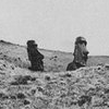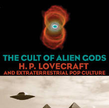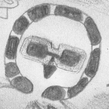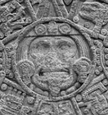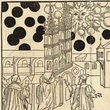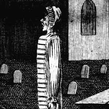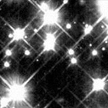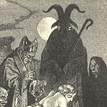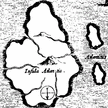S P E C I A L C O L L E C T I O N
"Regarding the solemnly cited myth-cycle of Cthulhu, Yog-Sothoth,
R’lyeh, Nyarlathotep, Nug, Yeb, Shub-Niggurath, etc., etc.--let me
confess that this is all a synthetic concoction of my own..."
H. P. Lovecraft
Letter to Robert E. Howard, August 14, 1930
R’lyeh, Nyarlathotep, Nug, Yeb, Shub-Niggurath, etc., etc.--let me
confess that this is all a synthetic concoction of my own..."
H. P. Lovecraft
Letter to Robert E. Howard, August 14, 1930
The horror author H. P. Lovecraft (1890-1937) is justly hailed as the master of the weird tale. His stories of the so-called Cthulhu Mythos, a series of loosely interconnected tales about a group of extraterrestrials that descend to the earth and are promptly worshiped as gods by blinkered humans, are among the most resonant and influential in the horror genre. Lovecraft's impact on fiction in indisputable, touching works ranging from Alien to The Evil Dead series to Stephen King. But another side of Lovecraft's legacy is less well known. Lovecraft's fictional creations have led to an explosion of pseudo-historical claims that real aliens influenced actual human history. This special collection brings together my articles and blog posts about the accidental influence of H. P. Lovecraft in the world of nonfiction.
|
Charioteer of the Gods For people familiar with the science fiction magazines of the 1940s and 50s, Eric von Daniken's "revolutionary" assertion about alien gods held more than just a hint of other writings that claimed long before that the gods were not of this world. |
|
The Cult of Alien Gods: H. P. Lovecraft and Extraterrestrial Pop Culture In this entertaining and informative book, Jason Colavito traces the origins of the belief in ancient extraterrestrial visitors to the work of horror writer H.P. Lovecraft (1890–1937). This amazing tale takes the reader through fifty years of pop culture and pseudoscience. Image: Prometheus Books
|
|
The Secret History of Ancient Astronauts In 2005, my The Cult of Alien Gods proved that the ancient astronaut theory originated in Lovecraft's horror fiction, the so-called "Cthulhu Mythos." This article is a new, updated summary of the path from Lovecraft's fiction to the History Channel's "fact." |
|
Pauwels, Bergier, and Lovecraft: Establishing a Cthulhu-Ancient Astronaut Connection Critics have frequently contested that I have failed to sufficiently demonstrate that Pauwels and Bergier were inspired by Lovecraft to create their ancient astronaut theory despite the well-established connections between the French authors and the American horror writer. But this ignores the evidence. |
|
Lovecraftian Themes in Jacques Bergier's Later Work Some critics, however, do not believe that Lovecraft played a role in Bergier's development of the ancient astronaut theory in 1960. In light of the questions surrounding Lovecraft's influence on Bergier, it's relevant to review Bergier on Lovecraft from Extraterrestrial Visitations from Prehistoric Times to the Present (1970; English trans. 1973). |
|
Henry Cavendish as Randolph Carter: Jacques Bergier Does It Again! In his usual elliptical way, Bergier means to suggest that famed scientist Henry Cavendish was an alien passing for human—a particularly astounding feat, since it involved counterfeiting a human life from birth to death, with all its attendant changes, using masks. |
|
Cthulhu vs. Xenu: The Case of H. P. Lovecraft and Scientology's Cosmology Scientology and Lovecraft share eerie parallels. Lovecraft’s (fictional) extraterrestrials came to earth in the distant past and had a profound and largely dark influence on early humanity, and this idea bears a resemblance to Operating Thetan Level III (OT-III), the cosmological doctrine L. Ron Hubbard created circa 1967 |
|
Exploring Lovecraft's "Gorgo, Mormo" Quotation in "The Horror at Red Hook." One of the best-known quotations from the occult rites gibbered in H. P. Lovecraft’s stories is not actually Lovecraft’s work at all. In the “Horror at Red Hook” Lovecraft has a suggestive inscription written in Greek in a blasphemous church, translated “literally” by the investigator into Red Hook’s titular horror. |
|
Lovecraft, Theosophy, and Extraterrestrial Claims for the Book of Dzyan Lovecraft drew inspiration from Theosophy’s (fake) Book of Dzyan in developing the Mythos’ own pre-human or occult texts. While Blavatsky attributed Dzyan to Tibetan priests, Lovecraft reconfigured Dzyan to “antedate the earth”--something later ancient astronaut theorists would repeat. |
Photo credits: Unless otherwise noted, all images are from public domain sources.


